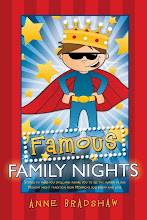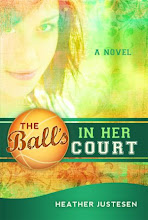You’ve seen it in movies. You’ve seen it in books. You’ve seen it everywhere and perhaps never noticed it. It’s a humor device called “Irony” and it’s one trick that authors use to make their characters and plot lines interesting and funny. Irony is, to quote Webster’s, “a method of humorous or subtly sarcastic expression in which the intended meaning of the words used is the direct opposite of their usual sense,” for example, when someone calls a stupid plan, “clever.” That is considered irony.
When used subtly, irony can make your work more saleable, because it makes the characters more interesting and fun to read about. It makes the characters more likeable because it gives them a fault that people can relate to. Who hasn’t thought of himself as something he is really not? It also gives your work more depth. An example from my recent reading is Jonathon Stroud’s Bartimeaus Series. His genie talks like an all powerful, ferocious, intimidating, godlike creature, when all his actions indicate that he is cowardly, and not as strong or smart as he thinks he is. This makes for some hilarious and clever situations that are very fun to read about. Another example from a very popular work is Diary of a Wimpy Kid. The “wimpy kid’s” dialogue is laced with irony, making us laugh and fall in love with the character. Even the Berenstein Bears has irony. The Papa Bear is always setting himself up as an expert and he is really klutzy and not very knowledgeable. In the movie, “G-Force,” a dainty, sweet little girl tells someone if they try to put a bow in her hair they will lose a finger. This is funny.
You’ll notice irony everywhere in popular fiction and movies because it makes fiction and movies popular, and it makes the author seem clever. One caution though. It can be overused, and then it makes the author look like he is trying too hard to be funny or sarcastic.
To add irony to your work, take a good look at your character. Is he a body guard? What would be the last thing a buff and burly dude would say or do? You need to surprise your audience. Make him a germaphobe who loves decorating, or have him love something sweet and cute. In the Amelia Peabody series by Elizabeth Peters, the very intelligent and mature sounding boy uses his intelligence to invent things that cause all sorts of hilarious trouble for everyone, making us realize he is not as grown up as he thinks he is. This is the type of interesting character that leaves readers clamoring for more. Author Janette Rallison has made a name for herself lacing her character’s dialogue with irony to make what they say humorous and clever. Read some of her books to study how she does it. As you study other authors who use this device it will begin to make sense to you and you will become an expert yourself.
Kersten Campbell, author of "Confessions of a Completely Insane Mother"
humor blog: www.kersten4.blogspot.com
website: www.kerstencampbell.com
Thursday, July 9, 2009
Tips for adding humor to your writing
Posted by Kersten at 10:52 AM
Labels: humor, Mom, Mormon humor, writing process, Writing Tips
Subscribe to:
Post Comments (Atom)

















5 comments:
Good blog. I love irony because it's more sophisticated than punchlines, and yet, you don't need a college degree to understand it.
I absolutely love the Amelia Peabody series, just so you know.
I've been told I have good humor in my writing and should use it more, but I worry about overuse and all that. I suppose it takes practice, like everything else
Cheri,
I think you are right about practice. But just to make you feel better...even Dave Barry worries about overuse. His solution is to have his wife and close friends read his work and they tell him when something is too over the top. He listens to them even when he doesn't agree and follows their suggestions.
I totally agree with your blog. thank you
Post a Comment